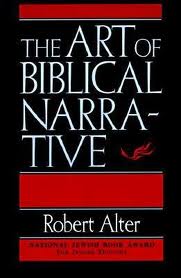Check this out.
One might imagine the Bible as a rich and variegated landscape, perfectly accessible to the observer’s eye, but from which we now stand almost three millennia distant. Through the warp of all those intervening centuries, lines become blurred, contours are distorted, colors fade; for not only have we lost the precise shadings of implication of the original Hebrew words but we have also acquired quite different habits and expectations as readers. (emphasis mine)
-Robert Alter, The Art of Biblical Narrative, p.185
I’ve heard a lot of people try to mix in a little bit of ancient near-eastern scholarship into their Bible study and interpretation. This is good! I think I like N.T. Wright the most though since his is so dang thorough. The footnotes are beefy on all points and NOT at all the “spam” footnotes that show up so often in academia lately. He doesn’t just mix in a little bit of handpicked quotes from Josephus to bolster a point in his sermon. The work in his Christian Origins series is serious, exhaustive scholarship from someone who is about as passionate about this stuff as possible.
In has been my own experience in making a sustained effort to understand biblical narrative better that such learning is pleasurable rather than arduous.
-Robert Alter, The Art of Biblical Narrative, p.188
True dat!

How Alter can also be passionate about this stuff and not be anywhere near orthodoxy is something I don’t quite understand. Perhaps he’s more of a straight up bible nerd, rather than Wright, who is also a shepherd.
